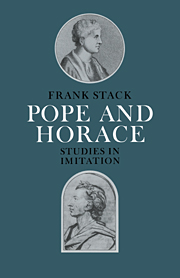Summary
It may be that one strong poet's work expiates for the work of a precursor. It seems more likely that later visions cleanse themselves at the expense of earlier ones. But the strong dead return, in poems as in our lives, and they do not come back without darkening the living. The wholly mature strong poet is particularly vulnerable to this last phase of his revisionary relationship to the dead. This vulnerability is most evident in poems that quest for a final clarity, that seek to be definitive statements.
Harold Bloom, The Anxiety of Influence (pp. 139–40)The point of view which I am struggling to attack is perhaps related to the metaphysical theory of the substantial unity of the soul: for my meaning is, that the poet has, not a ‘personality’ to express, but a particular medium, which is only a medium and not a personality, in which impressions and experiences combine in peculiar and unexpected ways.
T. S. Eliot, ‘Tradition and the Individual Talent’ (pp. 19–20)TheImitation of Epistle I.i. forms a very striking conclusion to Pope's Imitations of Horace, but it is not in fact entirely the end of the story. The two ‘Dialogues’ written very shortly after it, and eventually to be called the Epilogue to the Satires, offer another and very different conclusion. The first, published only two months after the Imitation in May 1738, was entitled simply, One Thousand Seven Hundred and Thirty Eight. A Dialogue Something like Horace. The second came out in July, as One Thousand Seven Hundred and Thirty Eight. Dialogue II.
- Type
- Chapter
- Information
- Pope and HoraceStudies in Imitation, pp. 275 - 280Publisher: Cambridge University PressPrint publication year: 1985

